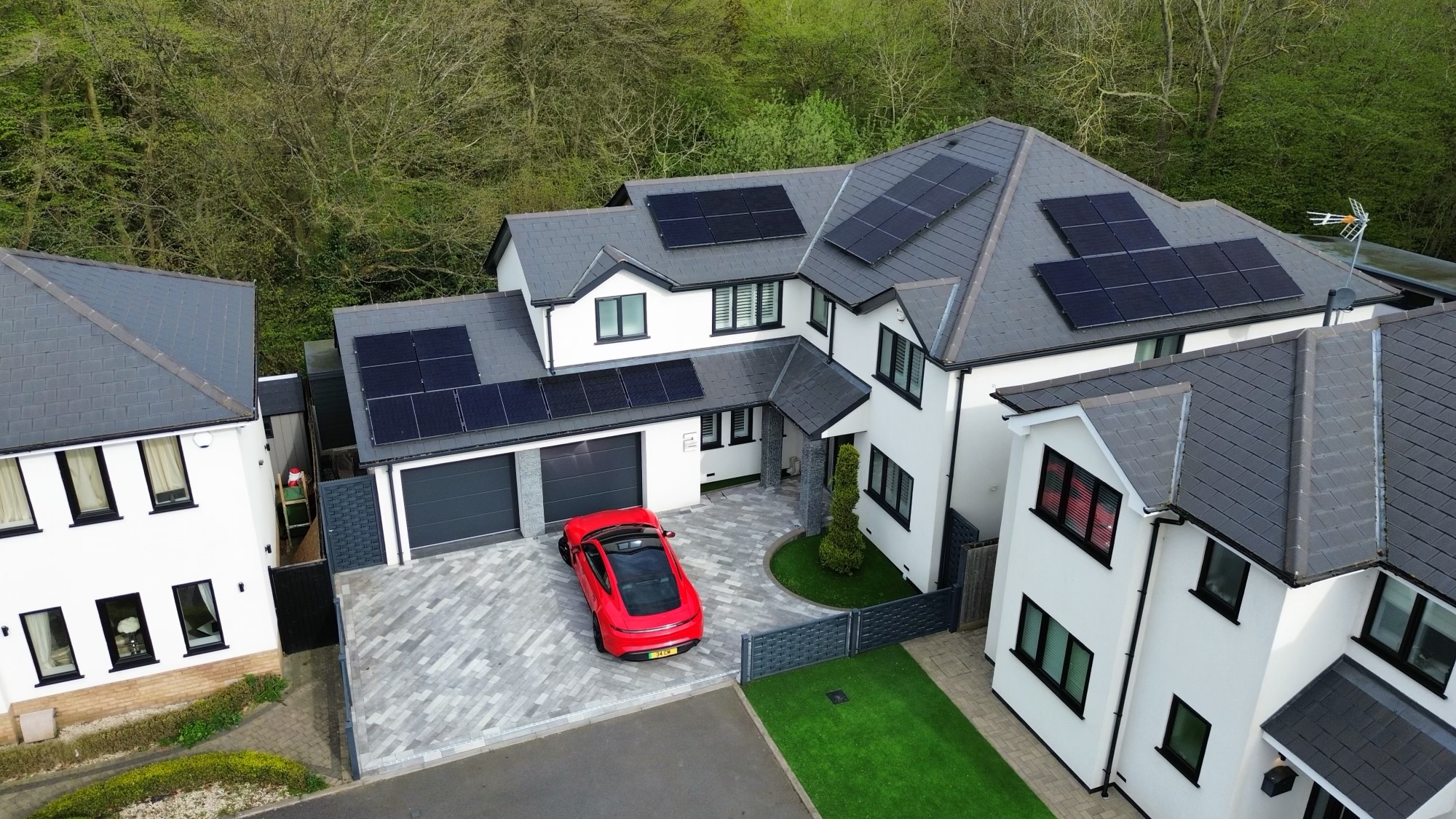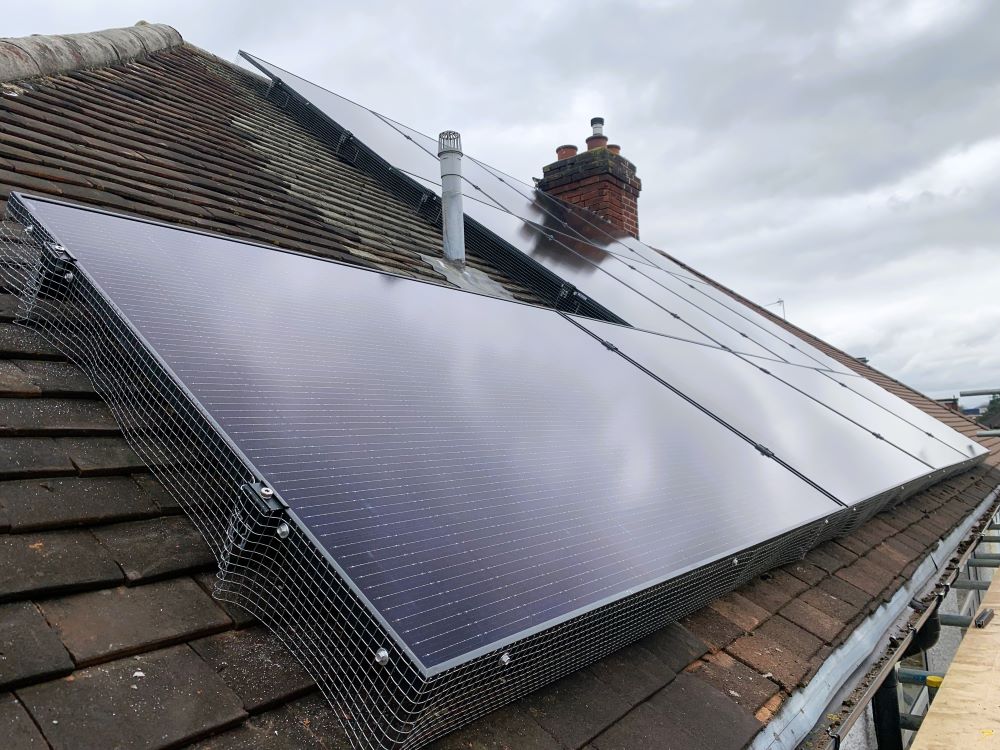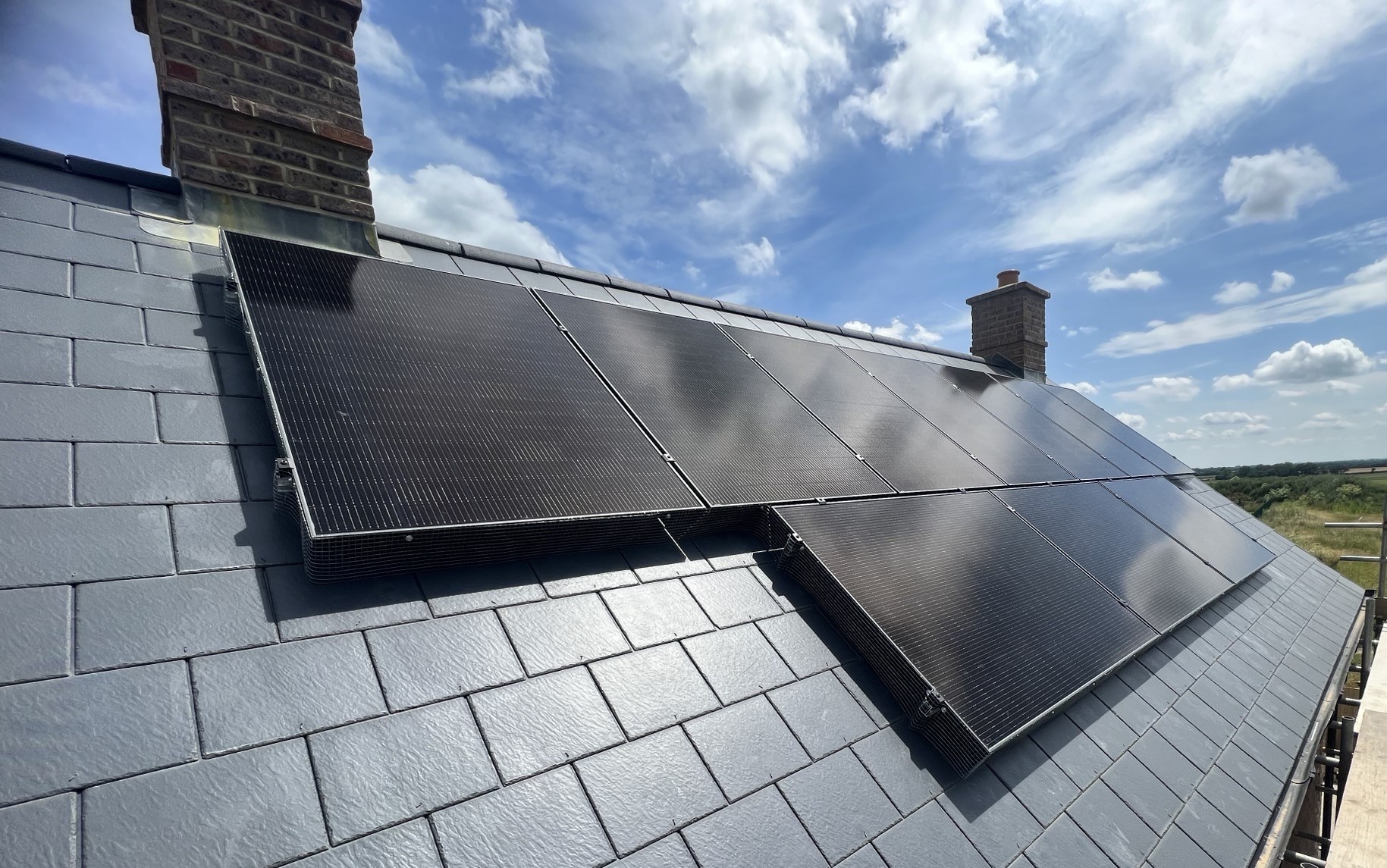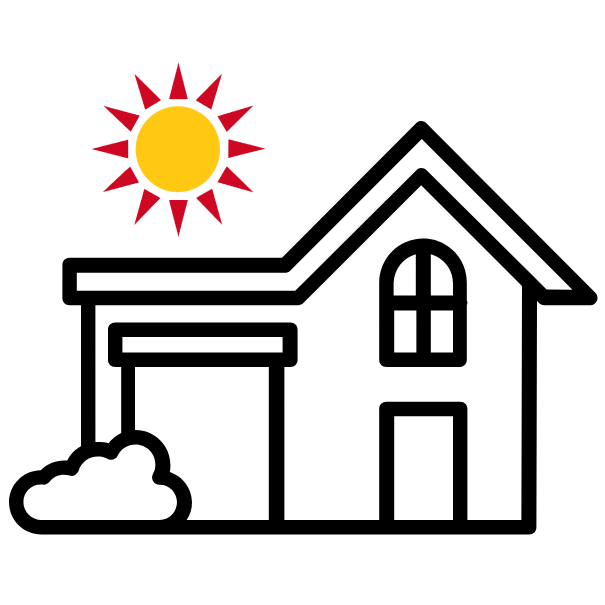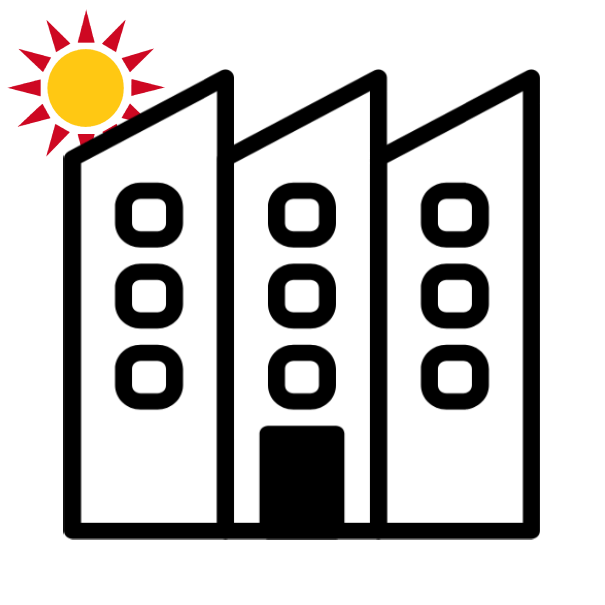What are the effects of shading solar panels?
Solar panels need to be exposed to direct light for them to generate electricity and therefore if solar panels are shaded they won’t get the light they need. So can shading prevent you from having solar panels installed on your roof?
When your roof is assessed for solar panels one of the factors that will be taken into account is potential impacts to the solar panel’s efficiency. One of the most essential elements of this assessment is solar panel shading. This is because it will impact the amount of electricity that can be generated by the solar panels and in some cases could make the system unfeasible as the yield may be too low.
Types of shading on solar panels
Many different things might cause shading of your solar panels, including nearby objects such as trees, buildings, antennae, chimneys and poles. Some solar panel systems could also suffer self-shading from other solar panel rows if they aren’t designed to be spaced correctly, for example on a flat roof mounting system.
You also need to factor in the level of the sun in the sky at different times of the year as things can become more of an issue in winter months when the sun is lower in the sky and horizontal shading occurs. This is achieved using a sun path diagram, whereby potential shading obstacles are mapped against the desired location of the solar panels to give a shade factor. This shade factor will then be used as part of the equation to determine the annual generation of the solar panels.
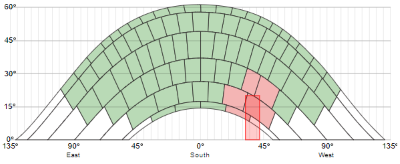
However, not all shading is caused by obstacles or structures. Other types of shading can include clouds, snow, and debris or dust on the solar panels which can also impact the output from the solar panels.
Download our solar guide
Get our free guide to Solar Panels. The best resource for starting your journey into Solar.
How much can shading affect the solar panels?
Unfortunately shading of solar panels doesn’t impact them proportionately in terms of their efficiency. The reason behind this is that the cells within a solar panel all work together as a single system – like a link in a chain. Therefore, if one cell is affected by shade it will have a knock on effect which can result in a reduced output of 50-80%.
In terms of your whole solar panel system, shading can cause an impact between different panels even if those panels aren’t shaded. This is due to most solar panel systems being linked together in a single string system to deliver the electricity generated so when the efficiency drops in one panel it slows down the pace of the electricity flow for the rest of the panels. It doesn’t matter where the shaded panel is in the system, it will have the same effect on the overall current.
Can you mitigate shading solar panels?
Some of the factors that affect shading can be managed through the placement of solar panels factoring in these obstacles and any potential shadows such as the location of the chimney. You can also cut back trees regularly to minimise the risk of shading on your solar panels. You can also investigate moving any roof furniture like antennae or poles so that it doesn’t pose any shading.
One of the ways you can mitigate the impact of shading on solar panels is by isolating the output from each panel so that when shading occurs it can’t impact the other panels. The way to do this is to use micro inverters as these are installed on each solar panel rather than having a single inverter for the whole solar array. This means that each solar panel operates independently from each other. Micro inverters are about 20-30% more expensive but their lifespan can be double the length of a conventional inverter, so they can be more cost-effective over the system’s whole lifespan as well as increasing its efficiency when shading occurs.
The orientation and angle of your solar panels are also impacting factors in ensuring that you get the best yield from your solar system, and these can also be used to mitigate shading.
If you are interested in solar panels and want to check the suitability of your roof space you can get in touch with us or fill out our simple online quote form for a no-obligation consultation.

